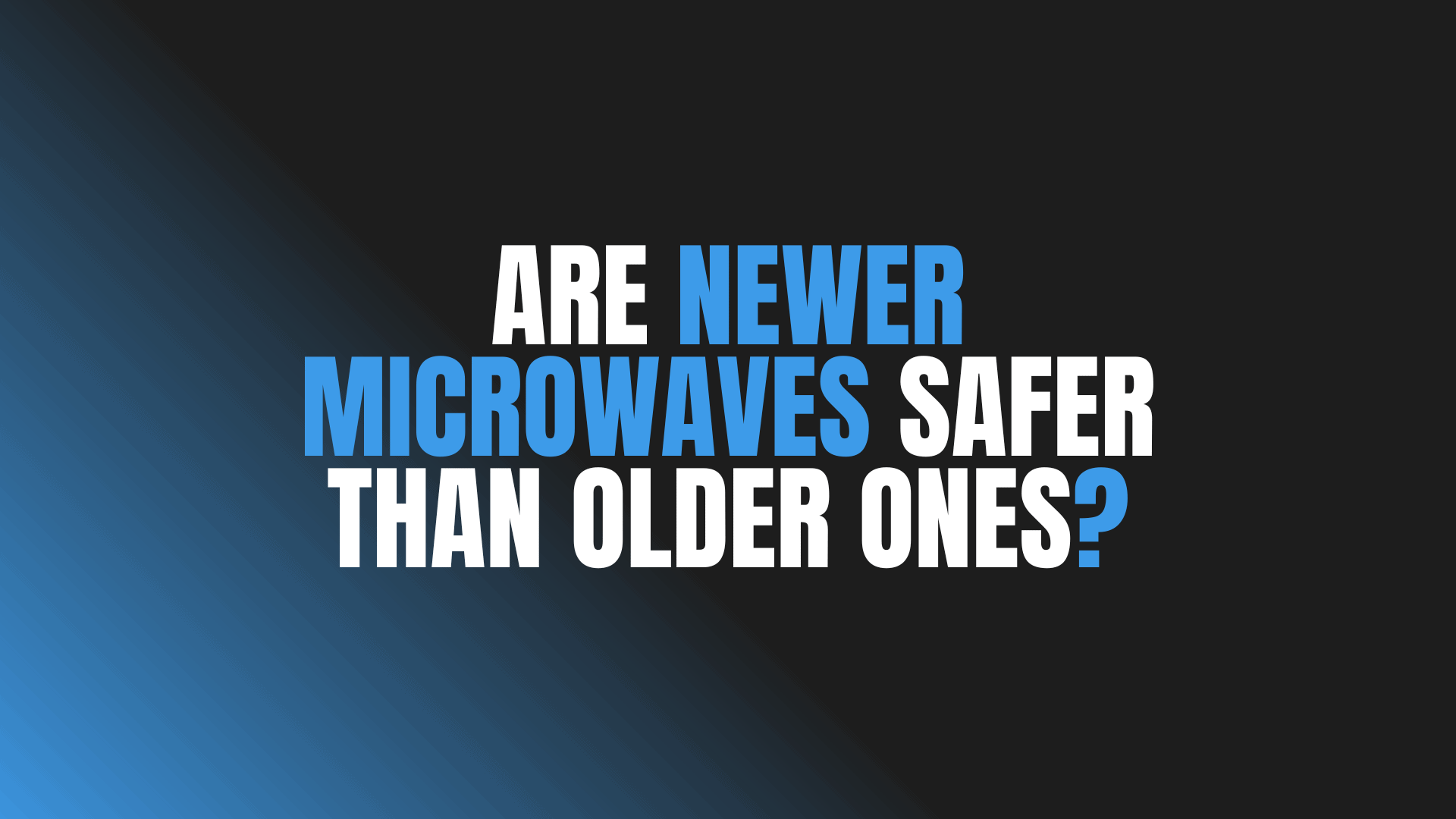
Question: Are Newer Microwaves Safer Than Older Ones?
Answer: Yes, newer microwaves are safer. Modern microwaves have improved safety features and adhere to stricter radiation leakage standards. While older models are generally safe if maintained, newer ones offer enhanced protection.
Microwave Safety: Old vs. New
Are newer microwaves safer than older ones? This question resonates with many homeowners. This article explores the evolution of microwave technology, addressing safety regulations, and examining the differences between older and newer models. You will learn key factors influencing microwave safety and gain a clearer understanding of potential risks.
We will compare older microwave ovens with their modern counterparts, analyzing safety advancements and debunking common misconceptions.
Radiation and Microwaves: Understanding the Basics
Microwaves use electromagnetic radiation to heat food. This radiation excites water molecules, generating heat through friction. While the term “radiation” may sound alarming, it’s important to understand the type of radiation involved. Microwave radiation is non-ionizing, meaning it lacks the energy to damage DNA like X-rays or gamma rays.
All microwave ovens emit some level of radiation. However, stringent regulations govern their manufacture and operation. These regulations limit the permissible leakage of microwave radiation to extremely low levels, well below the threshold for causing harm. Manufacturers design microwaves with shielding and safety interlocks to contain radiation within the cooking cavity.
Click here for more information on kitchen cabinet refinishing Toronto
Related Article: Is It Worth It to Fix a Microwave?
Related Article: How Do You Know If a Microwave Is Unsafe?
Comparing Older and Newer Microwave Ovens
Comparing older and newer microwaves reveals significant advancements in safety technology. Older models may have deteriorated seals or damaged door interlocks, increasing the potential for radiation leakage. Newer microwaves feature improved shielding and more reliable safety interlocks, minimizing leakage risks.
Modern microwaves often incorporate additional safety features such as child safety locks and automatic shut-off mechanisms. These features further enhance safety, especially in households with children. While older models may still function, their safety cannot compare to the improved design and construction of newer microwaves.
Factors Influencing Microwave Safety
Several factors influence microwave safety, regardless of age. Proper maintenance plays a vital role. A clean microwave and intact door seal are crucial for minimizing radiation leakage. Inspecting the door for damage and ensuring it closes securely are essential safety checks.
Avoid using damaged microwaves. Cracks in the door or casing, or malfunctioning interlocks, demand immediate attention. Continuing to use a damaged microwave poses significant safety risks. Regularly checking for wear and tear is a simple yet effective way to maintain a safe operating environment.
Maintaining Your Microwave
- Clean spills promptly.
- Avoid using metal containers.
- Do not operate an empty microwave.
Debunking Common Microwave Myths
Many myths surround microwave usage and safety. One prevalent myth claims that standing near a microwave during operation exposes you to harmful radiation. This claim is false. As long as the microwave is in good working order, radiation leakage levels remain well below safe limits, even at close proximity.
Another myth suggests microwaving food destroys its nutrients. While some nutrient loss occurs with any cooking method, microwave cooking generally preserves nutrients better than boiling, as it uses less water and shorter cooking times. Understanding these facts helps dispel unfounded concerns and encourages safe and informed microwave usage.
Common Misconceptions
- Myth: Microwaves cause cancer.
- Reality: No scientific evidence supports this claim.
- Myth: Microwaved food is radioactive.
- Reality: Microwaves do not make food radioactive.
Conclusion
Are newer microwaves safer than older ones? Generally, yes. Advancements in safety technology and more stringent regulations contribute to the enhanced safety of modern microwaves. While older models can operate safely with proper maintenance, they may lack the sophisticated safety features of newer designs. Factors like proper maintenance, regular inspections, and avoiding the use of damaged appliances are essential for safe microwave operation, regardless of age.
By understanding the basics of microwave radiation, staying informed about safety standards, and debunking common myths, you can use your microwave confidently and safely. Whether you have a new or older model, proper care and usage ensure you reap the benefits of this convenient appliance without compromising safety. Choosing a newer model offers added peace of mind with its updated safety mechanisms.

Blue Malue Get in touch with Blue here.
